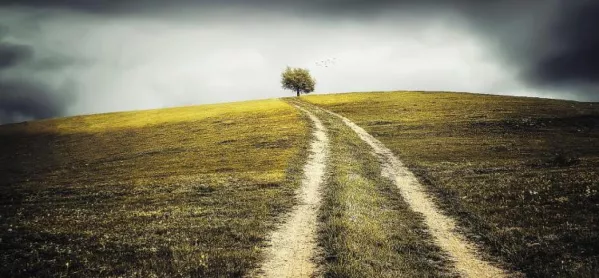Why leaders must roam their ‘personal hinterland’

Ralph Waldo Emerson once said: “Sometimes a scream is better than a thesis.”
It’s a powerful statement but, for me, it is silence that is more powerful than a scream. Silence for time to think, reflect, digest and consider one’s options - even if the time to do this is in short supply and there is no one there to turn to for advice, or take on the burden for you.
Indeed, for that reason you often hear school leadership described as “lonely”. But, there again, I’ve never thought if it like that - how could it be lonely when you are the centre of a school community?
But it can be solitary, yes. This solitude, though, is the silence that we need. It is important to have solitude because the intense daily interactions with hundreds of children, families, dozens of colleagues and others can exhaust even the most energised of us.
This is why we need time alone to gather our thoughts, rest, recharge and ensure we are operating at our best.
Time alone, not lonely
Yet leaders can get this wrong and become “lonely” when they start to use this time, not to think and reflect but to cut themselves off, not only from colleagues but also students and parents.
After all, these daily interactions are the glue of any school community and, like it or not, if you are the school head, there is a very public role to play on a daily basis.
So we must be social but also have solitude. Into this mix we must also add the need to network with our peers.
Good leaders have effective networks, mentors and use “schools down the road” to talk to. In international education, throughout this pandemic, this has been a valuable lifeline, even if the “schools down the road” are on the other side of the Black Sea.
What makes a good leader?
I am currently part of a network of global school leaders working with Unicef and the Varkey Foundation on a project around comparative international school leadership. This month, the questions we discussed were two-fold:
- What makes a good school leader?
- How do cultural norms impact the characteristics of effective leaders?
I gave these questions a lot of thought in the last online seminar and drew upon the challenges I have faced as a school leader in all the contexts and communities I have led in, from Crickhowell to Chisinau.
And as I thought about this more, it made me realise that so much of where the greatest leadership comes from is at that point where our personal and professional lives mix and our humanity comes to the fore - one’s internal “hinterland”.
This is where we are our true selves, where we do not “act” but simply be - usually at the moments we are at our most effective. Indeed, when I reflect on where I have been successful, made an impact or where I have failed, it has been influenced directly by my personal hinterland, where that balance has been struck - or has not been struck.
Being your best self
After all, you don’t build a nourishing hinterland or a positive legacy by acting like a tyrant to your teams and community.
Quite the opposite. It is our ability to be human, trust others, connect genuinely with those you serve, and be honest about not having all the answers but knowing how to find them - that has a far greater impact than trying to pretend and hope for the best with irrational, blind optimism.
This is why, when I reflect on the questions above, I realise that the two questions cannot be answered in isolation and both are, ultimately, intertwined with that concept of a personal hinterland where we present are best selves to our community and for ourselves in times of solitude.
Know thyself
It is not always easy - there are times that are tough and lonely and, in the middle of a challenge like a pandemic, it can test even the best of leaders.
Yet school leadership has never been felt so tough or more important than in the past year. We need honourable and dignified leaders coming through the system.
And part of that means spending time alone, in solitude, understanding our own hinterlands, so we can serve our communities to the very best of our abilities.
Rob Ford is director of Heritage International School in Chisinau, Moldova
You need a Tes subscription to read this article
Subscribe now to read this article and get other subscriber-only content:
- Unlimited access to all Tes magazine content
- Exclusive subscriber-only stories
- Award-winning email newsletters
Already a subscriber? Log in
You need a subscription to read this article
Subscribe now to read this article and get other subscriber-only content, including:
- Unlimited access to all Tes magazine content
- Exclusive subscriber-only stories
- Award-winning email newsletters